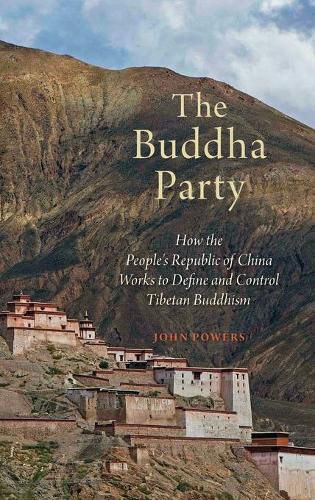Readings Newsletter
Become a Readings Member to make your shopping experience even easier.
Sign in or sign up for free!
You’re not far away from qualifying for FREE standard shipping within Australia
You’ve qualified for FREE standard shipping within Australia
The cart is loading…






The Buddha Party tells the story of how the People’s Republic of China employs propaganda to define Tibetan Buddhist belief and sway opinion within the country and abroad. The narrative they create is at odds with historical facts and deliberately misleading but, John Powers argues, it is widely believed by Han Chinese. Most of China’s leaders appear to deeply believe the official line regarding Tibet, which resonates with Han notions of themselves as China’s most advanced nationality and as a benevolent race that liberates and culturally uplifts minority peoples. This in turn profoundly affects how the leadership interacts with their counterparts in other countries. Powers’s study focuses in particular on the government’s patriotic education campaign-an initiative that forces monks and nuns to participate in propaganda sessions and repeat official dogma. Powers contextualizes this within a larger campaign to transform China’s religions into patriotic systems that endorse Communist Party policies. This book offers a powerful, comprehensive examination of this ongoing phenomenon, how it works and how Tibetans resist it.
$9.00 standard shipping within Australia
FREE standard shipping within Australia for orders over $100.00
Express & International shipping calculated at checkout
The Buddha Party tells the story of how the People’s Republic of China employs propaganda to define Tibetan Buddhist belief and sway opinion within the country and abroad. The narrative they create is at odds with historical facts and deliberately misleading but, John Powers argues, it is widely believed by Han Chinese. Most of China’s leaders appear to deeply believe the official line regarding Tibet, which resonates with Han notions of themselves as China’s most advanced nationality and as a benevolent race that liberates and culturally uplifts minority peoples. This in turn profoundly affects how the leadership interacts with their counterparts in other countries. Powers’s study focuses in particular on the government’s patriotic education campaign-an initiative that forces monks and nuns to participate in propaganda sessions and repeat official dogma. Powers contextualizes this within a larger campaign to transform China’s religions into patriotic systems that endorse Communist Party policies. This book offers a powerful, comprehensive examination of this ongoing phenomenon, how it works and how Tibetans resist it.